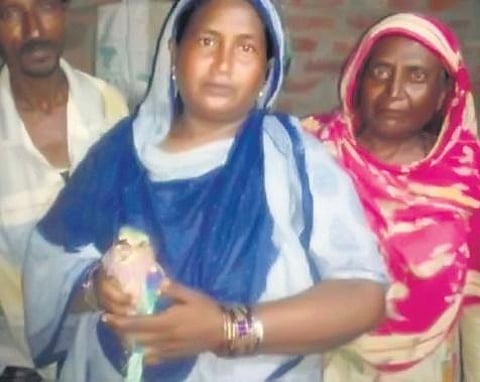

LUCKNOW: It is believed that with every mile, the language and essence of culture is changed in India, more so in Uttar Pradesh. A non-descript village in Deoria district is another example of the adage as it presents a unique example of communal harmony and amity between two communities. Here, the Muslims make the Dussehra festivities for their Hindu brethren possible through their unique gesture.
The Muslim community of Ramnagar village toils for nine days in search of a bird with blue neck popularly known as ‘Neelkanth’ and brings it to the village on ‘Navmi,’ a day ahead of Dussehra, the celebrations of which start only when the Hindu community takes darshan of Neelkanth.
As per the common belief, it is auspicious to do darshan of Neelkanth on Dussehra day as Lord Ram had taken darshan of the bird before eliminating the demon king Ravan and bringing back Goddess Sita from his captivity.
“The Muslim families make the darshan of Neelkanth possible for us. Without its darshan, we cannot start the Dussehra puja and other celebrations. This has been a 250-year-old tradition of this village,” says a villager Ramchandra Yadav, adding that the uniqueness of the tradition lies in the fact that a Muslim family makes the darshan of Neelkanth possible.
“This involves the Muslim community in Dussehra celebration with equal fervour and gusto,” says Yadav, who calls it a glaring example of amity and mutual harmony existing between the two communities in this small village. “The family of the late Mukhtar has been keeping the unique tradition for years.
After Mukhtar, who used to bring Neelkanth every year after a lot of hard work and start the Dussehra revelries, now his wife Jismara is carrying the responsibility with aplomb,” says Shri Krihan, an ex-cop.
As per the villagers, the family members of Jismara leave home in search of ‘Neelkanth’ about 10 days ahead of Dussehra and make it a point to return to the village with the bird at least a day ahead of Dussehra.
“Dussehra teaches about showing mercy towards animals and birds as a lot of animals and birds had joined Lord Ram in his endeavour to bring Sita back from the captivity of Ravana,” says Jism Ara.
Explaining further, the villagers say that on the day of Dussehra all the men, women and children are made to take Neelkanth’s darshan and in the evening each family, including Hindu and Muslims both, gather at the village Hanuman temple and render bhajans together.
Liaquat Ali takes the lead in singing bhajans dedicated to Lord Ram and Goddess a Sita at Hanuman temple and Hindu devotees just follow him. In the night, after worshipping it, the bird Neekanth, who is representative of the victory of good over evil, is then set free on the night of Dussehra,” said Ajay Singh, who teaches at the village school.
A blue-neck bird and brotherhood
The Muslims of Ramnagar village toils for nine days in search of a bird with blue neck, the ‘Neelkanth’, for the Hindu community here, as Dussehra starts only when they take darshan of the ‘Neelkanth’